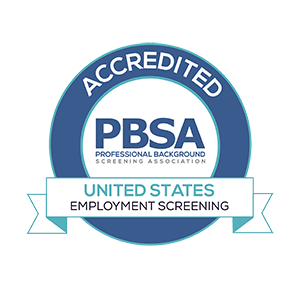Compliance and the Critical Difference between Arrest and Conviction Records
Compliance InformationArrest and conviction don’t always go hand-in-hand. When it comes to making decisions about employment actions such as hiring, firing, promotion, transfers, and demotions, it is critical to understand the difference and to act accordingly…
Strategy and Insights: How Should Employers Use Criminal History in Employment Now That The EEOC Has Issued Enforcement Guidance?
Compliance InformationThe federal government has approved new rules that might make it easier for convicted criminals and others in trouble with the law to find work, reports MSNBC.
The Equal Employment Opportunity Commission (EEOC) voted 4-1 to approve new rules…
EEOC Guidance On The Use Of Criminal Records In Employment Is Published
Compliance InformationAs I’m sure everyone is aware, the Equal Employment Opportunity Commission just published a new guidance document on the use of arrest and conviction records in employment. I hope everyone was able to attend the webinar held by our law firm…
New Regulations Require Use Of E-Verify
Compliance InformationSupporters of tougher immigration laws are applauding the implementation of new laws that place stricter hiring rules on employers.
In states like Alabama, the latest legislation will significantly affect employment in the construction industry.…
Consumer Reporting Agencies Must Comply With The Fair Credit Reporting Act
Compliance InformationEvery company that screens new employees must abide by a strict set of rules, but how do you know if your business is fully compliant with the Fair Credit Reporting Act?
The complex set of federal regulations, enacted in 1970 and amended…
California bans use of credit reports for employment purposes
Compliance InformationWithin days, the state of California will begin punishing employers that consider credit reports when making hiring decisions. The Golden State’s legislature is the seventh to vote in favor of the new rules, and although there are a few exceptions…
California Joins Other States in Placing Restrictions on Employer Use of Credit Checks
Compliance InformationOn October 10, 2011, Governor Brown signed into legislation Assembly Bill No. 22, which generally prohibits employers from using an applicant’s or employee’s credit history in making employment decisions.
Effective January 1, 2012, Employers…
California Senate Bill 909 to ammend disclosure requirements
Compliance InformationCalifornia SB 909 takes effect on January 1, 2012, and amends CA Civ. Code Section 1786.16, requires that employers include the background check company’s internet website in the Disclosure form. The purpose is so that an applicant can get…
Maryland Joins Illinois, Washington, Oregon and Hawaii In Placing Restrictions on Employer Use of Credit Checks
Compliance InformationOn April 12, 2011, Governor O’Malley signed into legislation the Job Applicant Fairness Act which generally prohibits employers from using an applicant’s or employee’s credit history in making employment decisions. Specifically, the Act…
Philadelphia Passes A New “Ban The Criminal Box” Law That Applies To Private Employers
Compliance InformationEmployers in Philadelphia will soon need to revise the criminal history questions on their employment applications based on a recent law. On April 13, 2011, City of Philadelphia Mayor Michael Nutter signed Bill No. 110111-A, which was passed…

